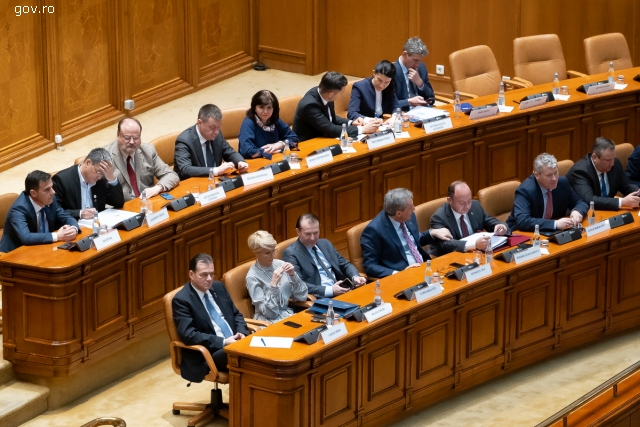The Liberal Government faces censure motion
Three months after taking office, the Liberal Government is facing its first censure motion

Ştefan Stoica, 04.02.2020, 14:00
The extraordinary plenary sitting
of the Romanian Parliament kicked off abruptly with a read-out of the text of
the censure motion filed by the Social-Democratic Party and the Democratic
Union of Ethnic Hungarians in Romania against the Liberal Government led by
Ludovic Orban. The Social-Democrats have accused the Government for taking
responsibility over the law modifying the election law, in the sense that the
local elections due this summer will be held in two rounds. Motion signatories
say the Government must be urgently removed, because modifying the election law
ahead of an election is breaching Constitutional Court rulings and goes against
the recommendations of European bodies. The reasons behind the Liberals’ move
are purely political and disregard citizens’ rights, signatories also say. In
turn, the Liberals claim the modified election law ensures a better
representation of elected officials and guarantees their legitimacy. Even if it
occurs in an election year, the return to the two-round election system will
improve election legislation, therefore it would not infringe on European
recommendations in the field. To pass, the motion needs 233 votes in favor.
Social-Democrat interim president Marcel Ciolacu seems confident, saying the
Social-Democrats will nominate a Prime Minister from outside the party ranks.
I am confident we have the
necessary votes. We also had a thorough conversation with my colleagues from
across the country and it seems we will be nominating a Prime Minister from
outside the party. I will never vote any Liberal Government and as long as I am
interim leader I will recommend against voting Orban as Prime Minister.
Prime Minister Ludovic Orban
however believes the motion will fail.
MPs from the National Liberal
Party will be attending the sitting and voting openly against the censure
motion. I have entrusted the leaders of parliamentary parties with the task of
negotiating with our partner groups and MPs individually, to persuade them of
the benefits of the two-round voting system and hence to make them vote against
the motion.
Whereas at first the motion was
seen as a symbolic gesture, as the Social-Democrats were believed not to go all
the way towards snap elections, the perception has now changed. The risk that
the snap elections should follow the removal of the Orban Cabinet is still high,
but the Social-Democrats have done the math and want to preserve their regional
influence, which has won them so many elections. For that, they must do
everything in their power to block the two-round voting system, in a year when
the election score is close and local and legislative elections can go either
way.
(Translated by V. Palcu)






























